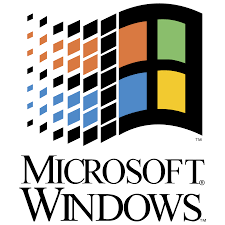More languages
More actions
(Vault 7) Tag: Visual edit |
m (Reverted edits by RedArcher9 (talk) to last revision by Amicchan) Tag: Rollback |
||
| (2 intermediate revisions by 2 users not shown) | |||
| Line 20: | Line 20: | ||
===Backdoors and surveillance=== | ===Backdoors and surveillance=== | ||
<code>_NSAKEY</code> is a variable that stores a PGP signature used for encryption in [[Windows NT]]. There is eponymous | <code>_NSAKEY</code> is a variable that stores a PGP signature used for encryption in [[Windows NT]]. There is eponymous suspicion that Windows NT has a backdoor usable by the [[National Security Agency]]. | ||
In 2017, [[WikiLeaks]] revealed that the [[Central Intelligence Agency|CIA]] can hack into Windows PCs and listen to people through them.<ref>{{Web citation|author=ZeroHedge.com|newspaper=[[MintPress News]]|title=Wikileaks Releases ‘Vault 7’ – The Largest Leak Of Confidential CIA Documents To Date|date=2017-03-07|url=https://www.mintpressnews.com/wikileaks-releases-vault-7-largest-leak-confidential-cia-documents-date/225613/|archive-url=https://web.archive.org/web/20210215075858/https://www.mintpressnews.com/wikileaks-releases-vault-7-largest-leak-confidential-cia-documents-date/225613/|archive-date=2021-02-15|retrieved=2022-09-04}}</ref> | In 2017, [[WikiLeaks]] revealed that the [[Central Intelligence Agency|CIA]] can hack into Windows PCs and listen to people through them.<ref>{{Web citation|author=ZeroHedge.com|newspaper=[[MintPress News]]|title=Wikileaks Releases ‘Vault 7’ – The Largest Leak Of Confidential CIA Documents To Date|date=2017-03-07|url=https://www.mintpressnews.com/wikileaks-releases-vault-7-largest-leak-confidential-cia-documents-date/225613/|archive-url=https://web.archive.org/web/20210215075858/https://www.mintpressnews.com/wikileaks-releases-vault-7-largest-leak-confidential-cia-documents-date/225613/|archive-date=2021-02-15|retrieved=2022-09-04}}</ref> | ||
Latest revision as of 08:32, 11 July 2023

Microsoft Windows (often informally known as Windows or Win), is a line of graphical proprietary, closed-source operating systems developed by the Microsoft Corporation. Existing since 1985, Microsoft Windows, in its various editions, has grown to become one of the most popular computer operating systems globally, holding about seventy-five percent of the market share as of 2022.[1]
History[edit | edit source]
Prior to the development of Windows 2000, Microsoft used MS-DOS as the kernel in Windows 95, Windows 98, Windows 98 SE, and Windows ME.
Microsoft Windows NT replaced the MS/DOS kernel in Windows 2000 and newer operating systems.
Source Code Leak[edit | edit source]
The source code of MS-DOS 3.3, MS-DOS 6, Windows NT 3.5 & 5, Windows CE 6 & 7, Windows 2000, Windows Server 2003[2], and Windows XP[2]; were leaked on September 26, 2020.
Controversies[edit | edit source]
Forced automatic updates[edit | edit source]
Microsoft implemented automatic updates that cannot be disabled in Windows 10.
Backdoors and surveillance[edit | edit source]
_NSAKEY is a variable that stores a PGP signature used for encryption in Windows NT. There is eponymous suspicion that Windows NT has a backdoor usable by the National Security Agency.
In 2017, WikiLeaks revealed that the CIA can hack into Windows PCs and listen to people through them.[3]
References[edit | edit source]
- ↑ "Most Popular Operating Systems (OS) for Computers, Smartphones, Tablets etc". Tech 21 Century. Retrieved 2022-8-6.
- ↑ 2.0 2.1 Catalin Cimpanu (2020-09-30). "Windows XP leak confirmed after user compiles the leaked code into a working OS" ZDNet.
- ↑ ZeroHedge.com (2017-03-07). "Wikileaks Releases ‘Vault 7’ – The Largest Leak Of Confidential CIA Documents To Date" MintPress News. Archived from the original on 2021-02-15. Retrieved 2022-09-04.
